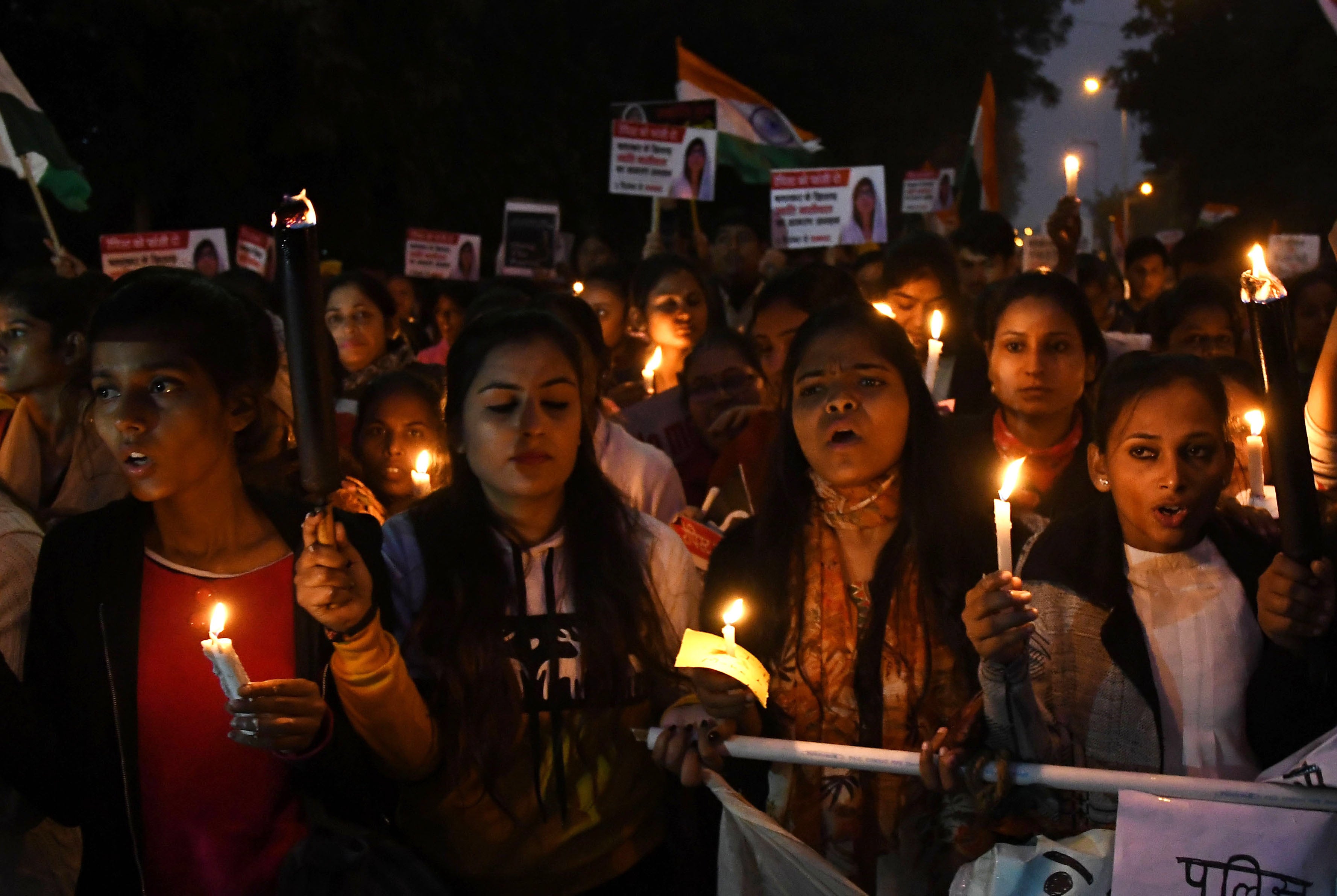Two Dalit teenage girls found dead on farm in India
Politicians from opposition parties are demanding that the third girl, who is critical, be shifted to Delhi for better treatment

Your support helps us to tell the story
From reproductive rights to climate change to Big Tech, The Independent is on the ground when the story is developing. Whether it's investigating the financials of Elon Musk's pro-Trump PAC or producing our latest documentary, 'The A Word', which shines a light on the American women fighting for reproductive rights, we know how important it is to parse out the facts from the messaging.
At such a critical moment in US history, we need reporters on the ground. Your donation allows us to keep sending journalists to speak to both sides of the story.
The Independent is trusted by Americans across the entire political spectrum. And unlike many other quality news outlets, we choose not to lock Americans out of our reporting and analysis with paywalls. We believe quality journalism should be available to everyone, paid for by those who can afford it.
Your support makes all the difference.Two Dalit teenage girls were found dead on their family’s farm on Wednesday evening, while one of their sisters is in a critical condition in Unnao district of Uttar Pradesh, a state in northern India.
The girls, all from the same family, had gone to the field to collect fodder (grass) for cattle on Wednesday but when they did not return by evening, their families started a search and found them allegedly with their hands and legs tied with their own clothes.
The two girls who were found dead, were aged 13 and 16 while the one who is critically ill is 17 years old. The youngest amongst them was a cousin of the two older girls.
Unnao superintendent of police, Sureshrao A Kulkarni, stated that the girls were found in an unconscious state and suspected that they were poisoned.
“They were taken to the hospital where two of them died while one was referred to the district hospital where she is undergoing treatment. It seems to be a case of poisoning… detailed investigations are on,” said Mr Kulkarni. Police are recording statements of all the concerned people in the case.
Dr BB Bhatt, the chief medical superintendent of Unnao’s district hospital, said the girl, who was brought by the police to the hospital in a critical state, was gasping for breath and chances of her survival are slim.
“She was unconscious. We have given her oxygen and she is undergoing treatment. She has water in her lungs and we are trying to take that out. She has suffered brain damage and is critically ill. Right now, there are dim chances of her surviving. There are signs of her being poisoned with pesticides,” Dr Bhatt told local media.
She is currently under treatment at the Regency Hospital in Kanpur, a city approximately 22 kms (13 miles) from Unnao.
Mr Kulkarni on Thursday said a forensic team is going to visit the spot where the incident happened to ensure scientific investigation. He said post-mortem of the two girls is being conducted and assured a fair investigation.
Opposition politicians and activists have demanded that she be airlifted to national capital, Delhi, for treatment at the All Indian Institute of Medical Sciences (AIIMS), considered one of India’s top government hospital.
The recent incident is reminiscent of the September, 2020, gang-rape and murder of a 19-year-old Dalit woman, allegedly by four upper caste men in Hathras district in Uttar Pradesh. She was found in the fields, naked and bleeding, and died of her injuries, in a case that sparked outrage in India.
Her death also re-focussed the spotlight on atrocities committed against the Dalit community, considered one of the lowest in India’s centuries-old caste system, and revived a debate about safety of women in a country where a rape happens every 15 minutes, according to government figures.
The four accused were arrested but they received widespread support from the upper caste groups and others, including a former state legislator of the ruling Bharatiya Janata Party (BJP).
Rahul Gandhi, leader of the opposition Indian National Congress party, criticised authorities in the BJP-led Uttar Pradesh state which he said is not only crushing Dalits but women and human rights as well. He assured his and his party’s commitment in ensuring justice to the victims.
Chandra Shekhar Azad, who is national president of the local Azad Samaj Party, demanded that the post-mortem of the two girls be conducted at AIIMS in Delhi by a panel of doctors which must have representation from the scheduled caste and scheduled tribe communities.
“Post-mortem should be videographed to avoid any discrepancies. Survivor should immediately be shifted to AIIMS,” Azad tweeted.
The case also received attention from Bollywood actors such as Richa Chadha and Swara Bhasker.
“Heaven and hell exist on earth and Unnao is hell for women, particularly the most vulnerable of them. Prayers for the girl who’s battling for her life, cold rage that this keeps happening. Unnao will NOT be Hathras. Bring the guilty to justice, now. #Unnao #DalitLivesMatter,” tweeted Ms Chadha.
This is not the only incident involving women victims in Unnao. In 2019, a legislator of BJP was convicted in the rape of a 17-year-old girl. In a separate case a rape survivor was set on fire by her alleged rapists in the district in the same year.




Join our commenting forum
Join thought-provoking conversations, follow other Independent readers and see their replies
Comments